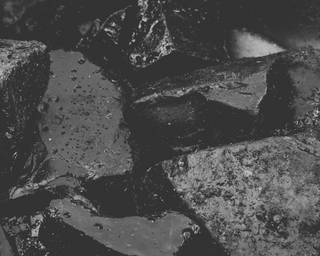The short answer is that shilajit is most likely safe assuming you have bought a high quality, properly tested product, but we can't be 100% certain.
That’s because most of the compounds in shilajit can be found in foods that are deemed safe to consume although not in such high concentrations. The main risk comes from lower quality shilajit that may not have been properly tested for heavy metals.
And of course there haven’t been any human studies to prove this and thus we have to be cautious.
As you’d expect it’s not legal to perform clinical trials on pregnant women for any medical reason, so when it comes to supplements it’s quite often the case that caution is advised.
The way safety is generally ascertained is by something called the pregnancy exposure registry, which means it being reported that a person was taking something during pregnancy, usually without knowing they were pregnant and supplements are generally not reported. And of course, this needs to happen quite a lot to determine whether or not something is actually in fact safe.
With this in mind, that leaves us with either the breakdown of certain compounds in shilajit and any known issues with those, or any further information that we do have about whether or not women can take shilajit while pregnant is largely the result of animal studies, which of course is not ideal.
Animal Studies and Shilajit Safety
As mentioned there have been a few animal studies designed to test the potential impact of shilajit on pregnancy.
The two most commonly cited studies are a study on female mice found that a daily dosage of 0.1-0.3 grams of shilajit had no adverse effects on the number of litters, placental development, or fetal weight. And a study on female rabbits which also showed that shilajit caused no issues.
It’s also worth noting that these comparative doses are much higher than what would be recommended for a human to take in general.
These animal studies suggest that shilajit may be safe for use during pregnancy when taken in moderation. However, it's important to note that the extrapolation of animal study findings to human pregnancy is not always straightforward, and further research on human subjects is needed to confirm the safety and efficacy of shilajit in this context.
How Much Shilajit Should I Take When Pregnant?
Generally speaking, if you are going to take shilajit while pregnant it is important to make sure you don’t exceed the recommend dose of 400mg.
Potential Concerns and Cautions
Despite the promising animal studies there are still several concerns that warrant caution when considering shilajit use during pregnancy.
The primary concern is the potential for shilajit to contain heavy metals, such as lead, arsenic, and mercury, which can pose a significant risk to the developing fetus if consumed in high amounts. This is generally more of an issue with lower quality shilajit brands that do not undergo 3rd party testing.
The less realistic concern is about fulvic acid, which also is present in Radishes, Beetroots, Parsnips, Carrots, Turnips and Seaweed although at smaller concentrations than in shilajit.
There is some concern that it could have yet-unknown effects on the delicate balance of a pregnant woman's physiology and the fetus's development. But, this is largely erring on the side of caution.
Potential Benefits of Shilajit During Pregnancy
While the safety concerns surrounding shilajit during pregnancy do have some merit there are some potential benefits that may be of interest to expectant mothers. It's important to note that these potential benefits should be weighed against the lack of conclusive research and the need for medical supervision.
Improved Nutrient Absorption and Energy Levels
Shilajit is rich in fulvic acid, a compound believed to enhance the absorption and utilization of essential nutrients. This can be particularly beneficial during pregnancy when the body's nutritional demands are elevated.
And on top of that shilajit has been associated with increased energy production at the cellular level, which may help combat the fatigue and tiredness that are common during pregnancy.
Anti-Inflammatory and Immune-Boosting Properties
Pregnancy can often be accompanied by inflammation and an increased susceptibility to infections. Shilajit's anti-inflammatory and immune-boosting characteristics may potentially offer some relief for these pregnancy related challenges. However, the extent of these benefits and their direct impact on pregnant women specifically cannot be tested.
Potential for Gestational Diabetes Management
Interestingly, some research suggests that shilajit may have a positive impact on blood sugar regulation, potentially offering benefits for pregnant women with gestational diabetes. However, it's crucial for diabetic patients to closely monitor their condition and consult with their healthcare providers before considering shilajit or any other supplement.
Alternative Supplements for Pregnant Women
Given the uncertainties surrounding shilajit and pregnancy, expectant mothers may find it prudent to explore alternative well-researched supplements that are specifically formulated for prenatal care. These include:
- Prenatal Vitamins: Designed to provide the essential vitamins and minerals required for a developing fetus, prenatal vitamins are a safe and recommended supplement for pregnant women. Although there have been several scandals involving supermarket brands for these in recent years.
- Iron Supplements: Addressing the increased risk of anemia during pregnancy, iron supplements can help maintain healthy red blood cell levels.
- Omega-3 Fatty Acids: These essential nutrients support the development of the fetus's brain and eyes. And generally most people don’t get nearly enough.
- Probiotics: Promoting gut health and reducing the risk of infections, probiotics can be a beneficial addition to a pregnant woman's supplement regimen.
By focusing on these well-established and pregnancy-specific supplements, expectant mothers can support their health and the growth of their unborn child without the uncertainties surrounding shilajit.
Shilajit and Breastfeeding: Considerations for Nursing Mothers
The safety of shilajit during the breastfeeding period is another area that requires careful consideration. Unfortunately there is even less research available on the effects of shilajit on lactating women and their nursing infants compared to the pregnancy context. Not that we have a lot to work with when it comes to shilajit and pregnancy.
Given the lack of conclusive data, the decision to use shilajit while breastfeeding ultimately rests with the individual nursing mother and their healthcare provider. Factors such as the quality and purity of the shilajit product, the dosage, and the individual's response should all be taken into account.
As with pregnancy, nursing mothers are generally advised to err on the side of caution and avoid shilajit or any other herbal supplements unless expressly recommended and monitored by a qualified healthcare professional.
Ensuring Shilajit Quality and Purity
One of the critical factors in the safe use of shilajit, particularly for pregnant and breastfeeding women, is the quality and purity of the product. Shilajit is a natural substance that can be prone to contamination, with the potential for heavy metal and other impurities to be present.
When considering shilajit, it is essential to source from reputable, third-party-tested suppliers that can provide comprehensive heavy metal analysis and quality assurance documentation. This due diligence can help ensure that the shilajit being consumed is free from potentially harmful contaminants that could pose a risk to the mother and the developing or nursing child.

